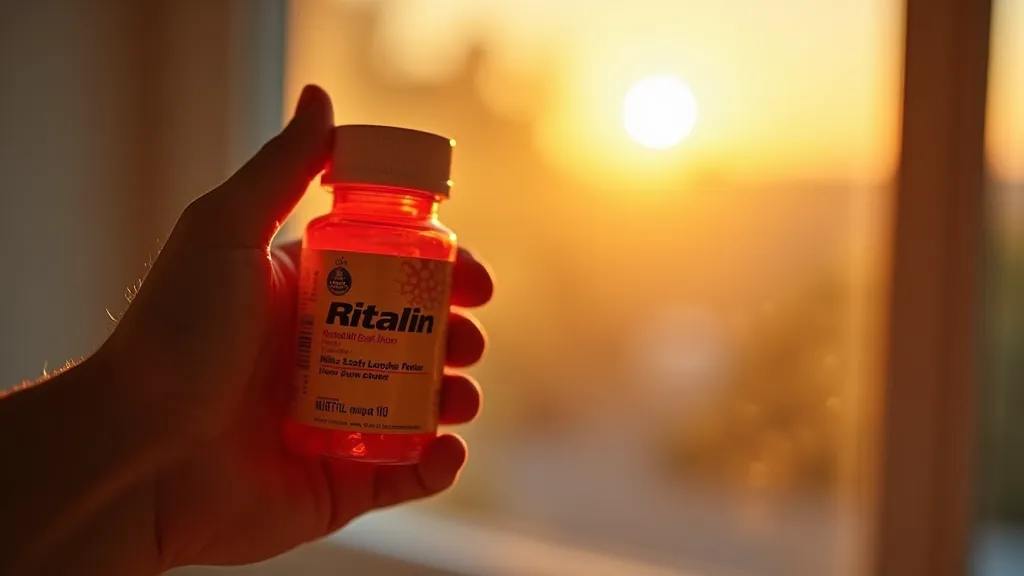In a world that never sleeps, the struggle with excessive daytime sleepiness is more prevalent than ever. While sleep disorders like narcolepsy are well-known, many find themselves combatting unexplained fatigue despite clocking in adequate sleep hours. Enter Ritalin—a stimulant primarily known for treating ADHD, now being explored as a solution for persistent daytime drowsiness. Discover how this medication is changing the narrative of sleep management in a society obsessed with productivity.

The Sleepy Reality: Battling Daytime Drowsiness
For Marcus Tan, a high-powered financial analyst, the afternoon energy slump wasn’t just an inconvenience—it was a career threat. Despite getting a full night's sleep, Marcus found himself nodding off during crucial afternoon meetings. Such episodes were not only embarrassing but also potentially damaging to his productivity and professional image. Like many, Marcus initially attributed his drowsiness to normal fatigue, but when lifestyle changes and caffeine failed to help, he sought medical advice. Thus began his journey into the world of Ritalin—a journey that promised to redefine his daily energy levels.
Ritalin's New Journey: Beyond ADHD
Historically prescribed for Attention Deficit Hyperactivity Disorder (ADHD) and certain cases of narcolepsy, Ritalin, or methylphenidate, has carved out a niche role in combating excessive daytime sleepiness. The stimulant properties of Ritalin make it a suitable candidate for addressing fatigue-related conditions beyond its traditional usage. Its effectiveness lies in its ability to enhance focus and alertness, providing a much-needed boost for those dealing with persistent daytime lethargy. While the leap from ADHD to sleepiness treatment might seem unconventional, the underlying science supports its efficacy—a beacon of hope for those hindered by unwarranted drowsiness.
Mechanisms at Play: How Ritalin Enhances Alertness
Ritalin works by influencing neurotransmitter activity in the brain, particularly targeting dopamine and norepinephrine. These chemicals are crucial for maintaining focus and vigilance. By inhibiting the reuptake of these neurotransmitters, Ritalin ensures higher levels remain available in the synaptic cleft. This heightened presence directly correlates to increased wakefulness and improved cognitive function. For individuals plagued with excessive daytime sleepiness, this change can be life-altering, transforming lethargy into liveliness within a matter of hours.
The Testimonies: Real-Life Accounts of Energy Reclaimed
Claudia Rivers, a university professor, shares her positive experience with Ritalin. 'I didn’t realize how debilitating my sleepiness was until it was gone,' she explains. 'Before, writing lectures in the afternoon was a battle, but now, I’m alert and focused. It’s like a fog has lifted from my mind.' Hundreds echo Claudia’s sentiments, noting a remarkable enhancement in their quality of life. For many, Ritalin isn’t just a temporary fixture but a fundamental part of maintaining daily functionality and performance.
Weighing the Benefits: Ritalin's Role in Modern Life
The decision to use Ritalin as a treatment for excessive daytime sleepiness isn’t one to be taken lightly. Potential side effects such as increased heart rate, anxiety, and insomnia mean that medical supervision is crucial. Despite this, the benefits for many far outweigh the risks, with improved alertness opening doors to better career performance, academic success, and overall life satisfaction. As societal pressures to maintain high productivity rates persist, treatments like Ritalin offer a much-needed lifeline.
Future Directions: The Role of Ritalin in Sleep Research
With its rising popularity as a treatment for excessive daytime sleepiness, Ritalin's role in sleep research is only just beginning. Scientists are exploring its potential in treating other sleep-related disorders and enhancing cognitive functionality across various demographics. As research progresses, the medical community remains vigilant, with ongoing studies to better understand long-term effects and optimal usage strategies. The journey is far from over, but Ritalin's promise as a catalyst for wakefulness and productivity continues to spark interest and hope in the medical field.
Concluding Thoughts: Redefining Wakefulness in the Modern Age
In our fast-paced world, maintaining focus and energy during waking hours is essential to success. Ritalin’s unexpected application as a remedy for excessive daytime sleepiness might just revolutionize how we approach stubborn fatigue. While not a panacea, it offers a new avenue of hope for those wishing to reclaim their days from the clutches of unwelcome drowsiness. As Ritalin blurs the boundaries between its traditional roles and new-age benefits, society stands on the precipice of redefining alertness and productivity standards. Whether Ritalin is a long-term solution or a temporary fix, its role in shaping the narrative on daytime wakefulness is undeniable.